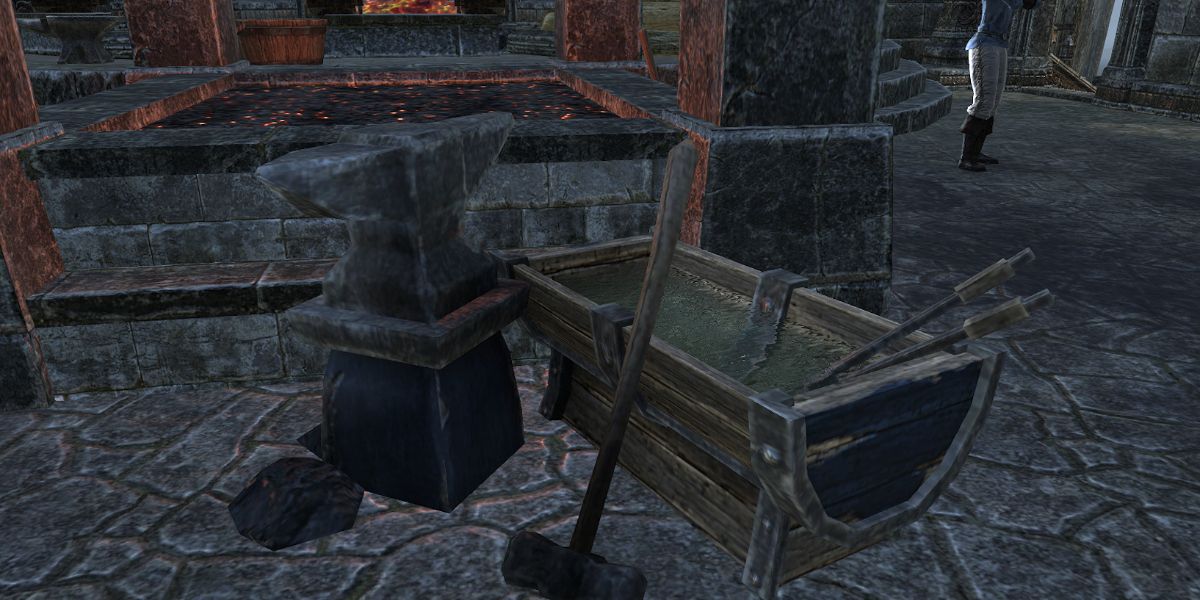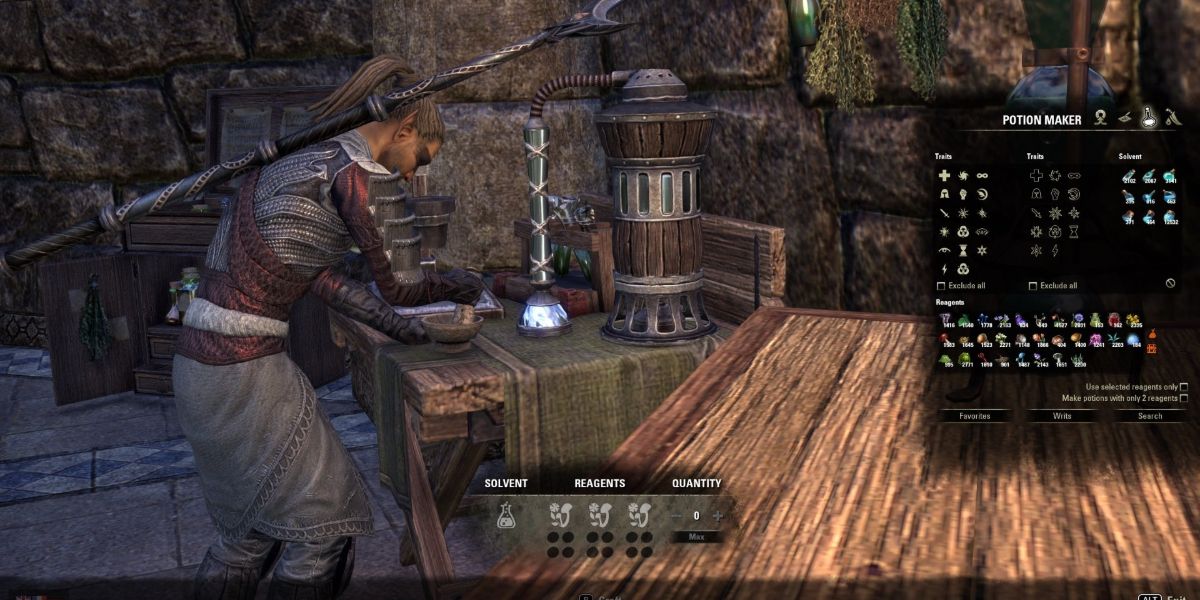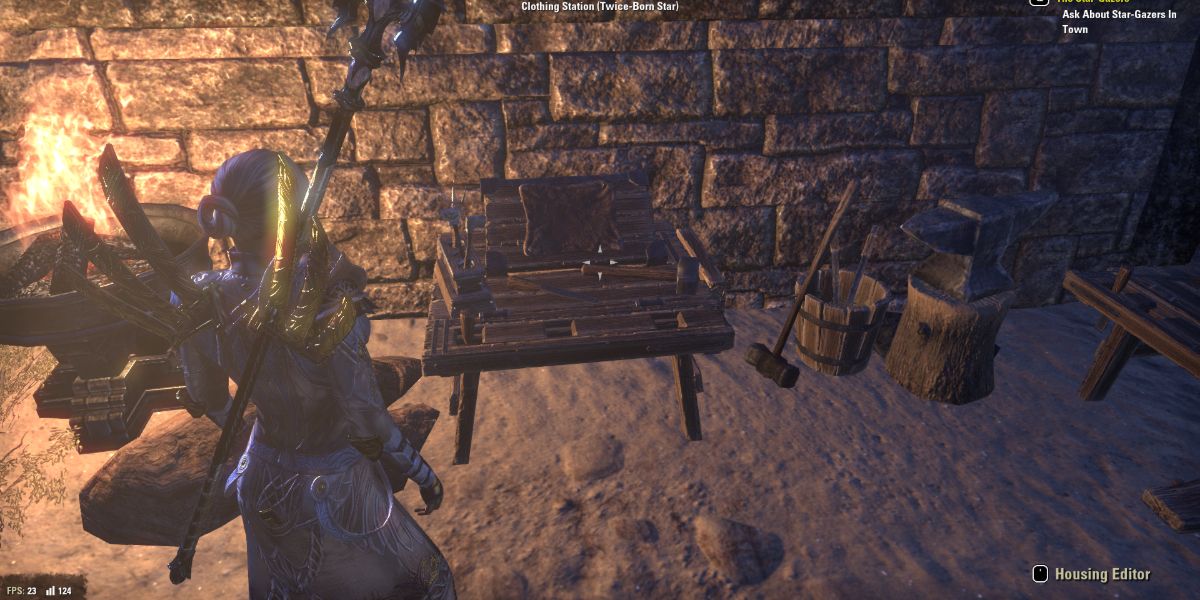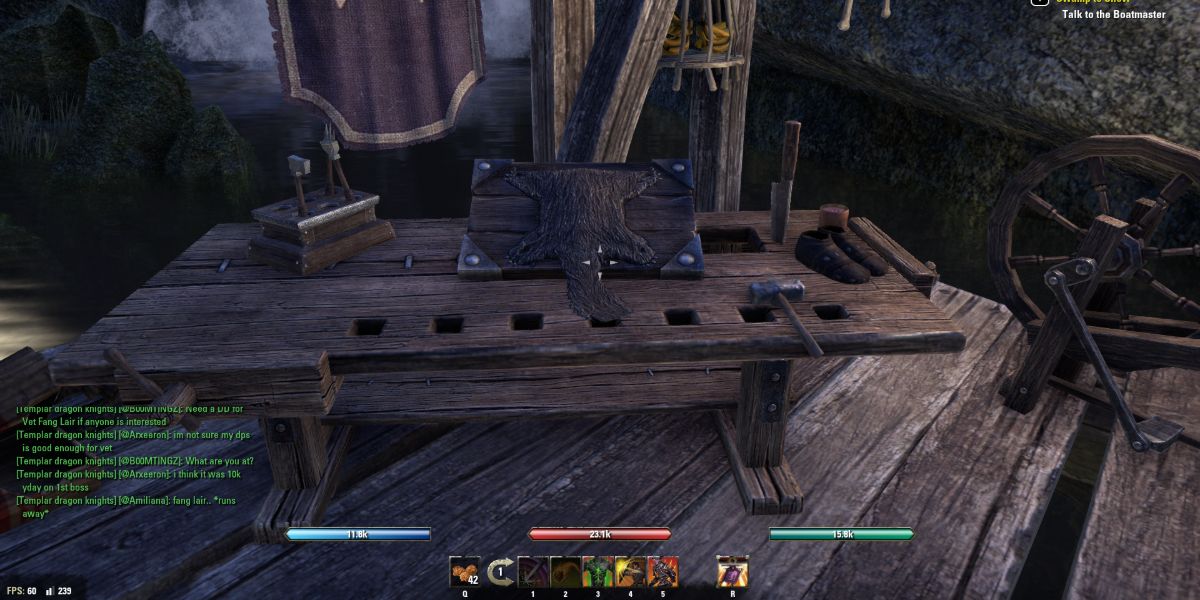In Elder Scrolls Online, crafting encompasses seven different professions. Each profession focuses on items that are useful for particular builds. Because of how the leveling system works, gamers will want to focus on leveling up the professions that are most relevant to their character.
People need to make smart decisions about where they allocate these skill points to make sure they have a viable class for dungeons and arenas. After all, a master crafter with no skill points in other areas will not fare well in battle.
Crafting Professions
Weapons, Armor, And Accessories
The right professions for each character will depend on two principal factors — class and preference. The Blacksmith profession is best suited for heavy armor tanks, who will be able to craft and upgrade armor in-game. Blacksmiths can craft various metal weapons and items too. In contrast, mages will want to level up the Clothier profession to create upgraded light armor. DPS builds will want to level up Woodworking to craft the bow, as well as arrows.
- Blacksmithing: Weapons And Heavy Armor
- Clothier: Light Armor
- Woodworking: Wooden Weapons
- Jewelry: Rings And Necklaces
Additional Crafting Professions
The final three professions are Alchemy, Enchanting, and Provisioning. Alchemy combines various ingredients in Tamriel to produce powerful potions. The Enchanting profession allows gamers to refine the power of runes to apply buffs to weapons and armor. Lastly, provisioning is the name for the cooking skill in ESO. Each of these final professions can be very useful in-game, providing utility in both PVE and PVP.
Leveling Up
Each profession is leveled by gaining experience, which is called Inspiration. Players can get Inspiration points by crafting, deconstructing materials, and gathering items. Basically, any action related to crafting, including crafting itself, will help gamers to progress in each tree. Many of the raw materials in ESO will need to be refined in order to be used when crafting.
Gathering Items
Getting the necessary resources to craft is simple. Trees can be chopped down for wood, and mineral deposits can be found near rock structures across the map. Alchemists can find plants scattered across the landscapes in Tamriel. As characters level up, more high-level resources will appear based on progression.
Instead of having to scour specific farming locations, gamers should periodically collect items as they travel from place to place. Barrels, sacks, and crates will also have useful crafting items and should be looted when possible. Deconstructing items will produce crafting materials as well.
The extra inventory space with the game's paid upgrade is helpful, but not necessary. Free-to-play users will just have to do a bit more inventory management to prevent running out of slots. Anyone that wants to get their crafting professions leveled up as quickly as possible may want to consider paying the small fee, especially if they plan to log a lot of hours in ESO. The crafted bag has basically limitless space and is far better than the base inventory.
Crafting Basics
The second tab of each equipment profession will be the crafting tab. This tab reveals what materials are needed and whether the player has enough of those materials to craft an item. Gamers can select the level of the item they wish to craft as well. Higher-level items have a higher resource cost but reward more Inspiration. Style components will have an impact on the way the armor looks and the trait of the piece will alter the specific buff or resistance applied. Different styles will not affect stats, but there are definitely better-looking versions of each armor piece.
Upgrading Items
Resins and tannins can be utilized in the fourth tab to improve weapons and items. There is a success rate when upgrading items, so gamers will want to allocate enough resources to have a high chance of the improvement working. The higher the level a player is, the fewer materials it will cost to insure a 100% success rate on improvements. Wasting resources is quite disheartening, so getting at least to 90% is advised. Players need to keep in mind that they will lose the resources as well as the item being upgraded if the improvement fails.
Researching Items
In order to research an item, players will need to find an item with an intrinsic trait and research it. Subsequently, weapons and armor may be imbued with its effect. Researching will destroy the item being researched, so it may not be worth the cost depending on how powerful it is. Adding traits will cost some extra resources, but it will make crafted weapons and armor exponentially better.
Using The Other Worktables
The final three professions are straightforward. Alchemists will need to experiment to unlock new potions and poisons. Use the correct materials for discovered recipes and these potions/poisons will be crafted. The same goes for the enchanting workbench. Using different combinations of runes while experimenting will create different effects that can be added to items. Glyphs can be destroyed to create more runes and perform more experiments.
For the provisioning profession, gamers will need to discover recipes while exploring and use those recipes to cook various types of food. There is no experimentation in this profession, so people will not have to waste time trying to figure out how to cook. That is it for the basics of crafting. Some professions are more complex than others, but all of them can be mastered if the tips in this guide are incorporated.






